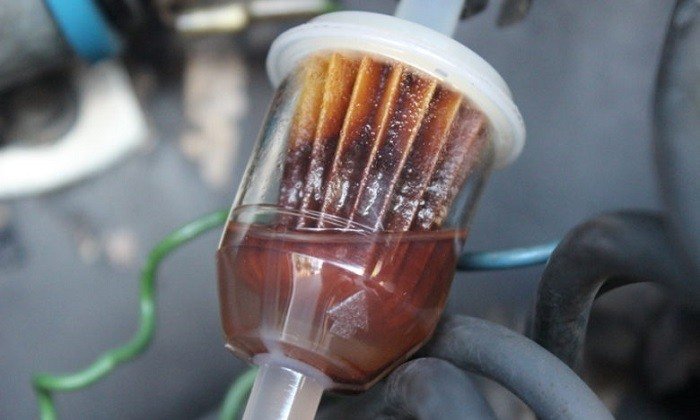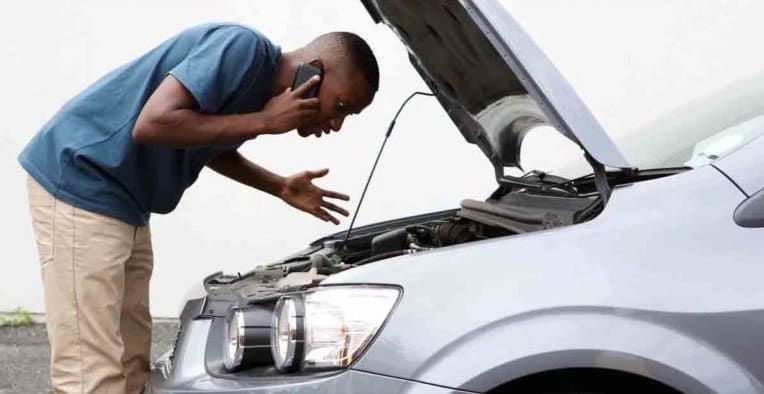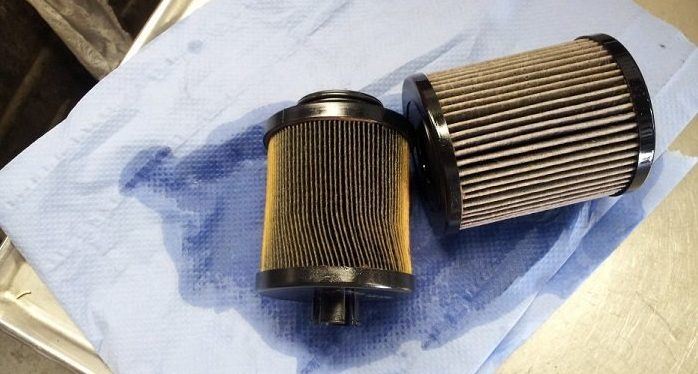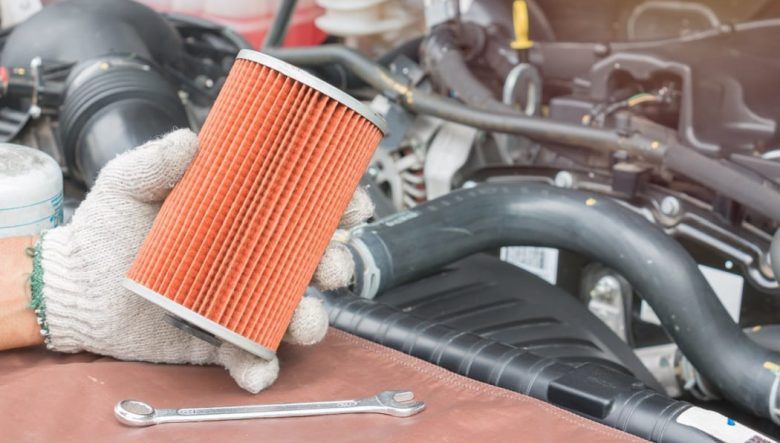by Joshua Thomas
The fuel filter is one of the most neglected parts of an engine because despite the important role it plays on the vehicle, many motorists hardly pay any attention to it. Also, the neglect stems from the fact that it is tucked out of sight, and so many vehicle owners forget about it easily.
But while the fuel filter might seem almost insignificant, it plays a crucial role in the vehicle which is to ensure no dirty fuel enters the system and clogs it or causes other more serious engine problems.
Hence, there is no doubt that you need to ensure your fuel filter is always at peak performance. But, for this, you first need to know how to tell when you have a bad or failing one. In this piece, we explain the symptoms of a bad duel filter and a few other important things you need to know about them.
Contents

Knowing when you need to check and clean or replace your fuel filter is the first step in fixing and ensuring it remains in good shape.
And while like any other vehicle issues the symptoms of a bad or failing one will differ from one vehicle to the other, the following are the most commonly manifested one for most vehicles.
One of the first or early signs that you can expect to see when you have a bad or failing fuel filter is that the vehicle will be hard to start, and in some instances fail to start completely.
Vehicles need fuel to fire up the engine, but with a dirty or clogged fuel filter, the flow of fuel in the system will be restricted or made inconsistent, which in turn makes it hard to start your vehicle.
In many instances, the vehicle will still start after several attempts. But, before you blame the hard starts on the fuel filter, it is important to first check and rule out other common starting issues such as a dead battery or faulty starter.
Random engine misfires are also a high possibility when you have a bad or clogged fuel filter, and this is more so when the vehicle is going uphill or carrying a heavy load, which are situations where it needs more fuel.
A clogged filter means that there are particles of dirt and debris clogging it, and hence preventing enough fuel from getting to the engine.
For those that use older vehicle models, the misfires will be more common and can occur when the vehicle is moving or idling. And because the amount of fuel getting to the engine varies a lot due to the clog, the vehicle might also stutter or shake when moving at different speeds.
Newer vehicles will hardly misfire when idling when you have a clogged fuel filter, but like older ones, they are still prone to misfires when moving.
Read More: Engine Misfire Symptoms
As a motorist, you should be able to tell how much power your car can generate if you have been driving it long enough. Hence, any significant drop in power will be hard to miss.
If you notice a major drop in engine power, this can be a sign that you have an issue with your fuel filter and need to check it. A drop in power will be clearer when driving uphill and your vehicle seems to struggle to move.
With a bad fuel filter, the drop in power stems from the tank’s fuel supply is not able to meet the engine’s demands because fuel is not flowing through smoothly and in the right quantity. But, this can also occur due to other engine and fuel system issues.

An engine stall is one of those things that will give motorists sleepless nights as many often think that it is a result of a catastrophic engine problem. But, this is not always the case because something less serious like a clogged fuel filter can also cause engine stalling.
If a clogged fuel filter is too dirty and is not attended to for a long time, it can easily lead to stalling as the engine will be starved of fuel.
In many instances, the stalling will happen when you place extra stress and load on the engine and it cannot get the fuel required to generate the extra power need to handle it. And so if you are having issues with an engine stall, you should always remember to check the fuel filter.
Although a bad fuel filter will restrict the amount of fuel getting to the engine, contrary to what many might assume, it still leads to poor fuel economy.
Because the clogging that comes with a bad fuel filter will mean that the engine does not get enough fuel, it will then demand a faster fuel pumping to meet the driving demands, which means it uses up more fuel.
Also, just like when you have other faulty engine and transmission system components, a bad fuel filter causes the engine to struggle to move the car and in the process, it ends up having to burn more fuel.
When there is a problem in your fuel system such as a bad or failing fuel filter, the vehicle’s computer should be able to detect it. Once the problem is detected the ECU will switch on the check engine light.
Hence, when you see that check engine light illuminate in your dashboard, then a bad fuel filter is one of the common issues that might be causing it.
Because there is a small amount of fuel passing through when the fuel filter is bad, the engine will be strained as it is starved of fuel. And this is what causes the check engine light to come on because while the computer will not detect the problematic fuel filter, it will detect there is an issue with the engine or something around it.
Read More: How to Reset Check Engine Light
A damaged fuel pump is quite a common vehicle problem, but what you might not know is that bad or clogged fuel filter is one of its main causes. Hence, a damaged fuel pump can also be a sign that you have a bad fuel filter.
If the fuel filter is unable to work properly, it will often put too much pressure on the fuel pump and also prevent enough fuel from getting to the engine. As a result of this, there is a huge likelihood that your fuel pump will get damaged in the process.
If you are having issues with your fuel pump, you should also check the fuel filter as you try to fix it, otherwise, the problem may persist even if you put a new one.

Now that you know the symptoms to watch out for to tell when you have a bad fuel filter, it is only natural to also want to know how best to address the issues.
Overall there are two possible solutions to a bad fuel filter, which are to clean or replace it. And while both can get it back to good working condition, they will be ideal for different situations.
Starting with cleaning up the fuel filter, this will be the natural solution for you if you do not have the time or resources to buy a new fuel filter. Also, this is a more ideal solution when the filter is not heavily clogged, is washable and also if you know how to clean the fuel filter thoroughly.
A replacement, on the other hand, provides a more long term solution, and it will assure that you will have complete debris or clog-free filter.
Different situations will call for a fuel filter replacement whether you see the symptoms above or not. By replacing the fuel filter, you will avoid having to deal with the consequences that come with a bad one. Here are the situations when you should replace the filter.

Even if your fuel filter seems to be in great working condition or the vehicle does not seem to have fuel system issues, you still need to replace the fuel filter regularly.
And while every vehicle manufacturer will have their specific recommendation on when to replace the fuel filter, for most, it will be between 20,000 and 60,000 miles depending on the age of the vehicle. The older the vehicle the more frequent the fuel filter change.
For those that have fuel filters that have been on their vehicle for quite some time, it is also highly recommended to replace it in case you run out of gas accidentally.
Running out of gas will allow any debris in the bottom of the tank to be forced to the fuel pump and then collect on the fuel filter which then results in clogging. This causes extra strain on the fuel pump and has an immense effect on the gas flow, and hence the need to replace the fuel filter.
Another opportune time to replace your fuel filter will be when undertaking repairs on the fuel system, and this is more so the kinds that will require depressurizing.
Replacing the filter when working on these other components will ensure that it does not end up being the weak link in the fuel system or the component that prevents optimal performance.
Note: Fuel filters on diesel vehicles will require more attention and should be replaced more frequently than petrol vehicles because the diesel tanks tend to be more prone to bacteria and fungus growth. And you should also remember to use diesel fuel additives to minimize microbial growth, and hence keep the fuel filters in good condition longer.
Given the important role that a fuel filter plays in your vehicle’s engine, you should never overlook the need to keep it in good working condition by cleaning or replacing it frequently.
With the symptoms of bad or failing fuel filter highlighted above that range from hard starts to engine stalling and check engine light coming on, it should now be easy to tell when your fuel filter needs some attention.
Fixing a bad fuel filter is quite simple and inexpensive. But you should keep in mind that failing to address these rather minor issues can lead to more serious problems that will cost much more to repair such as a damaged fuel system and an erratic engine.
Sources:
 |
 |
 |
 |

About Joshua Thomas
Joshua Thomas just simply loves cars and willing to work on them whenever there's chance... sometimes for free.
He started CarCareTotal back in 2017 from the advices of total strangers who witnessed his amazing skills in car repairs here and there.
His goal with this creation is to help car owners better learn how to maintain and repair their cars; as such, the site would cover alot of areas: troubleshooting, product recommendations, tips & tricks.
Joshua received Bachelor of Science in Mechanical Engineering at San Diego State University.
Just Car Care